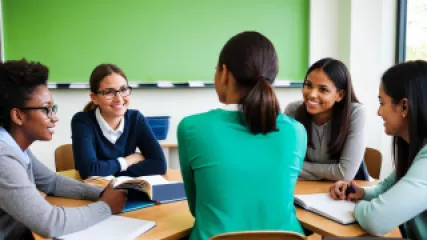Effective Strategies for Providing Mental Health Support in Educational Psychology
Introduction:
Educational psychology plays a crucial role in understanding the psychological processes of learning and development in educational settings. With the increasing recognition of the importance of mental health in the academic success of students, providing effective mental health support in educational psychology has become more essential than ever. This tutorial will guide educational psychologists on effective strategies for providing mental health support to students in educational settings, ensuring their well-being and overall success.
Step 1: Understanding the Role of an Educational Psychologist
Before diving into the strategies for providing mental health support, it is important to have a clear understanding of the role of an educational psychologist. Educational psychologists are professionals who apply psychological principles and theories to understand and address the learning and emotional needs of students. They work collaboratively with educators, parents, and other professionals to create inclusive and supportive learning environments.
Educational psychologists have a unique skill set that allows them to assess students' cognitive, emotional, and behavioral strengths and challenges. They use this information to develop effective interventions and strategies to support students' mental health and well-being.
Step 2: Building Rapport and Trust
Building rapport and trust with students is a fundamental aspect of providing effective mental health support. Students need to feel comfortable and safe in order to open up about their thoughts, feelings, and challenges. Here are some strategies to build rapport and trust:
- Show empathy and active listening: Demonstrate genuine interest in students' experiences and actively listen to their concerns.
- Create a non-judgmental environment: Foster an environment where students feel accepted and understood without fear of judgment.
- Respect confidentiality: Assure students that their personal information will be kept confidential unless there is a risk of harm to themselves or others.
- Be genuine and authentic: Build a genuine connection with students by being authentic and showing your own vulnerability when appropriate.
Step 3: Conducting Comprehensive Assessments
Effective mental health support requires thorough assessments to understand students' unique needs and challenges. Educational psychologists employ a variety of assessment methods, including:
- Interviews: Conduct one-on-one interviews with students to gather information about their emotional well-being, academic experiences, and any potential stressors.
- Observations: Observe students in various educational settings to assess their behavior and interactions with peers and teachers.
- Standardized assessments: Administer standardized tests to assess cognitive abilities, academic skills, and emotional functioning.
- Questionnaires and surveys: Utilize questionnaires and surveys to gather information from students, parents, and teachers about the student's emotional well-being and functioning.
By conducting comprehensive assessments, educational psychologists can gain a holistic understanding of students' mental health needs and tailor interventions accordingly.
Step 4: Developing Individualized Intervention Plans
Based on the assessments conducted, educational psychologists work collaboratively with students, parents, and educators to develop individualized intervention plans. These plans aim to address the specific mental health needs of students and promote their overall well-being and success. Here are some key components of effective intervention plans:
- Clear goals: Set clear and measurable goals that align with the student's needs and aspirations.
- Targeted strategies: Identify evidence-based strategies and interventions that address the student's specific challenges, such as cognitive-behavioral techniques or social skills training.
- Collaboration: Foster a collaborative approach by involving the student, parents, teachers, and other professionals in the intervention process.
- Progress monitoring: Regularly assess and monitor the student's progress towards the goals outlined in the intervention plan.
Step 5: Providing Psychoeducation and Skill-Building
Psychoeducation and skill-building play a crucial role in empowering students to manage their mental health effectively. Educational psychologists can provide psychoeducation to students, parents, and educators on various topics, including stress management, emotional regulation, and resilience. Additionally, they can facilitate skill-building workshops or groups to teach students coping strategies and enhance their social and emotional skills.
Step 6: Collaborating with Stakeholders
Collaboration with stakeholders is vital for successful mental health support in educational psychology. Educational psychologists should work closely with teachers, parents, and other professionals to ensure a coordinated and comprehensive approach. Here are some strategies for effective collaboration:
- Regular communication: Maintain open lines of communication with teachers and parents to exchange information and provide updates on student progress.
- Consultation: Offer consultation services to teachers and parents to address specific concerns and provide guidance on supporting students' mental health.
- Multidisciplinary meetings: Participate in multidisciplinary meetings where professionals from different disciplines come together to discuss students' needs and develop holistic support plans.
Step 7: Utilizing Technology for Support
In today's digital age, technology can be a valuable tool for providing mental health support in educational psychology. Educational psychologists can leverage various online resources and platforms to enhance their services. Some examples include:
- Educational psychology self-help resources: Create or curate online self-help resources that students, parents, and educators can access to learn about mental health and find practical strategies for support.
- Educational psychology teletherapy services: Offer teletherapy services to provide remote counseling and support to students who may not have easy access to in-person services.
- Educational psychology online resources: Develop online platforms or websites that provide information, resources, and support for students, parents, and educators.
The use of technology can expand the reach of educational psychologists and ensure that mental health support is accessible to a wider audience.
Conclusion
Providing effective mental health support in educational psychology requires a comprehensive and collaborative approach. By building rapport with students, conducting thorough assessments, developing individualized intervention plans, providing psychoeducation, collaborating with stakeholders, and utilizing technology, educational psychologists can make a significant positive impact on students' well-being and academic success. By implementing these strategies, educational psychologists can create inclusive and supportive learning environments where students can thrive both academically and emotionally.






